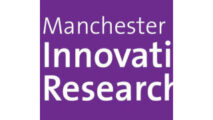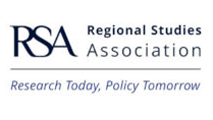SPECIAL SESSIONS
New (Big) data sources and methods to unpack the geography of innovation
Description
In the last decade, research has started harnessing the power and opportunities offered by the increasing availability of big data and new sources of data to answer complex questions and ask new ones. At the same time, the quantity, quality, geographical and temporal coverage of these data also poses challenges for traditional methods of analysis and raises the need to use new approaches.
This session aims to bring together scholars from different disciplines for a conversation on 1) new sources of (Big) data for the study of the geography of innovation, with a special attention to Digital Social Data, (2) novel geo-referenced data and big innovation databases, and 3) new methods such as Machine Learning and artificial intelligence.
In particular, this special session invites contributions in any of the following three streams:
1) Digital Social Data and Machine Learning
We invite contributions on Digital Social Data, which provide new avenues for research on “hidden innovations” – such as non-technological and user-driven innovations that typically elude the standardized classification systems of official statistics. A special focus is laid on research presenting new innovation indicators based on the resonance of innovations with users as well as Machine Learning methods that provide new ways to analyse and model large amounts of these new data and disclose hidden patterns of socio-economic activity.
Coordinators: Benjamin Klement (benjamin.klement@imw.fraunhofer.de), Yuri Campbell (yuri.campbell@imw.fraunhofer.de) (Fraunhofer Center for International Management and Knowledge Economy IMW, Leipzig)
2) Big data based on intellectual property rights and Machine Learning analysis
We invite theoretical and empirical contributions using big data based on intellectual property rights from institutional and commercial repositories – such as WIPO, EPO, USPTO or ESPACENET, among others – to elaborate innovation indicators based on patents, designs, trademarks and other forms of intellectual property. We also invite contributions which use new Machine Learning applications for analysis of these large databases – such as decision and regression trees, ensemble methods, neural networks, geo spatial clustering, network analysis, etc.
Coordinators: Rafael Boix (University of Valencia, rafael.boix@uv.es), Julio Raffo (WIPO, julio.raffo@wipo.int), Luciana Lazzeretti (University of Florence, luciana.lazzeretti@unifi.it), Deyun Yin (Deyun.yin@wipo.int)
3) Leveraging the wealth of geo-referenced data.
We invite contributions exploring the use of big data and new sources of geo-localised data, from social media and other geolocated apps and API services to satellite and other image processing data, for mapping and analysing geographies of innovation, innovation networks and knowledge diffusion.
Coordinators: Carlo Corradini (University of Birmingham, c.corradini@bham.ac.uk); Enrico Vanino (London School of Economics, e.vanino@lse.ac.uk)





